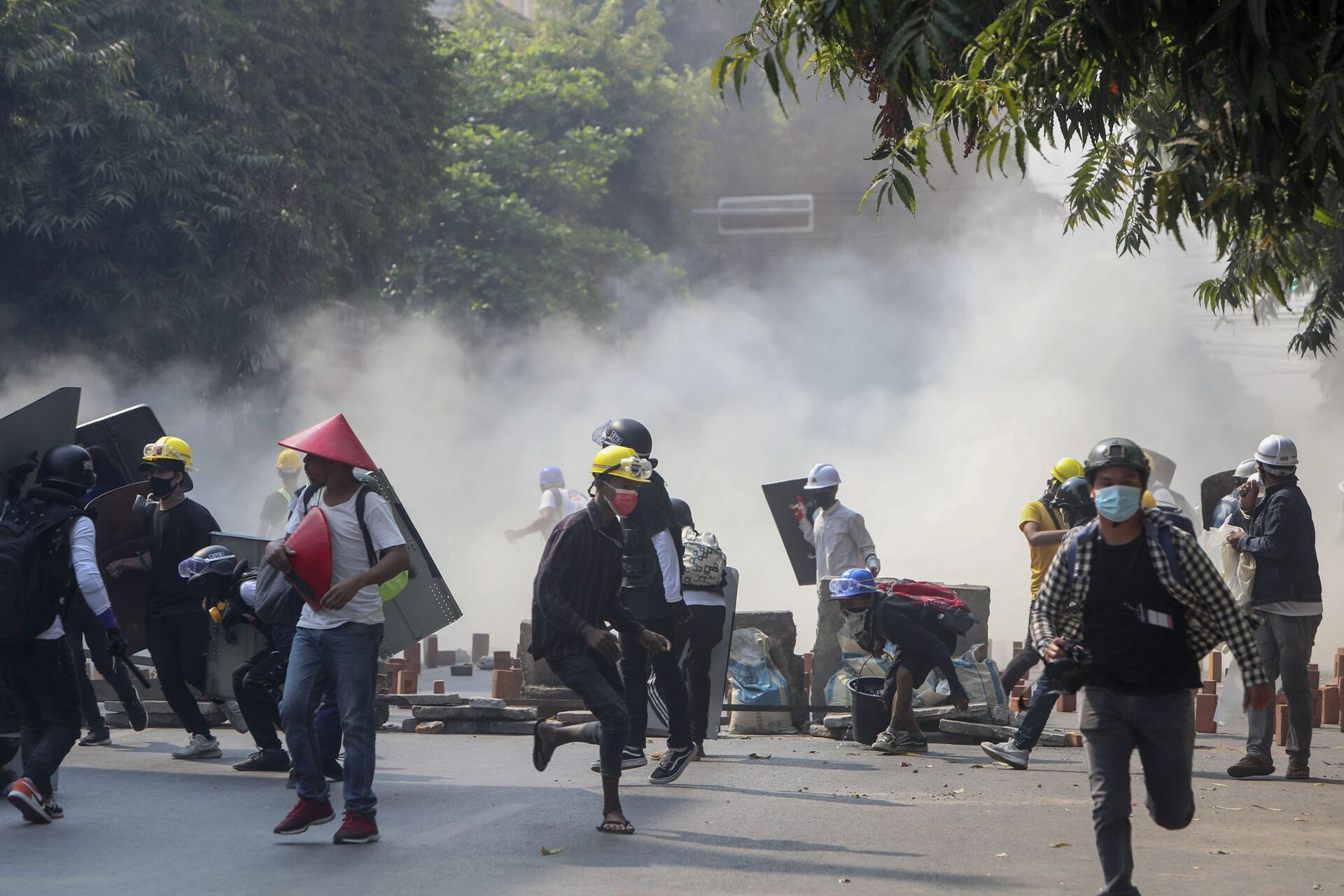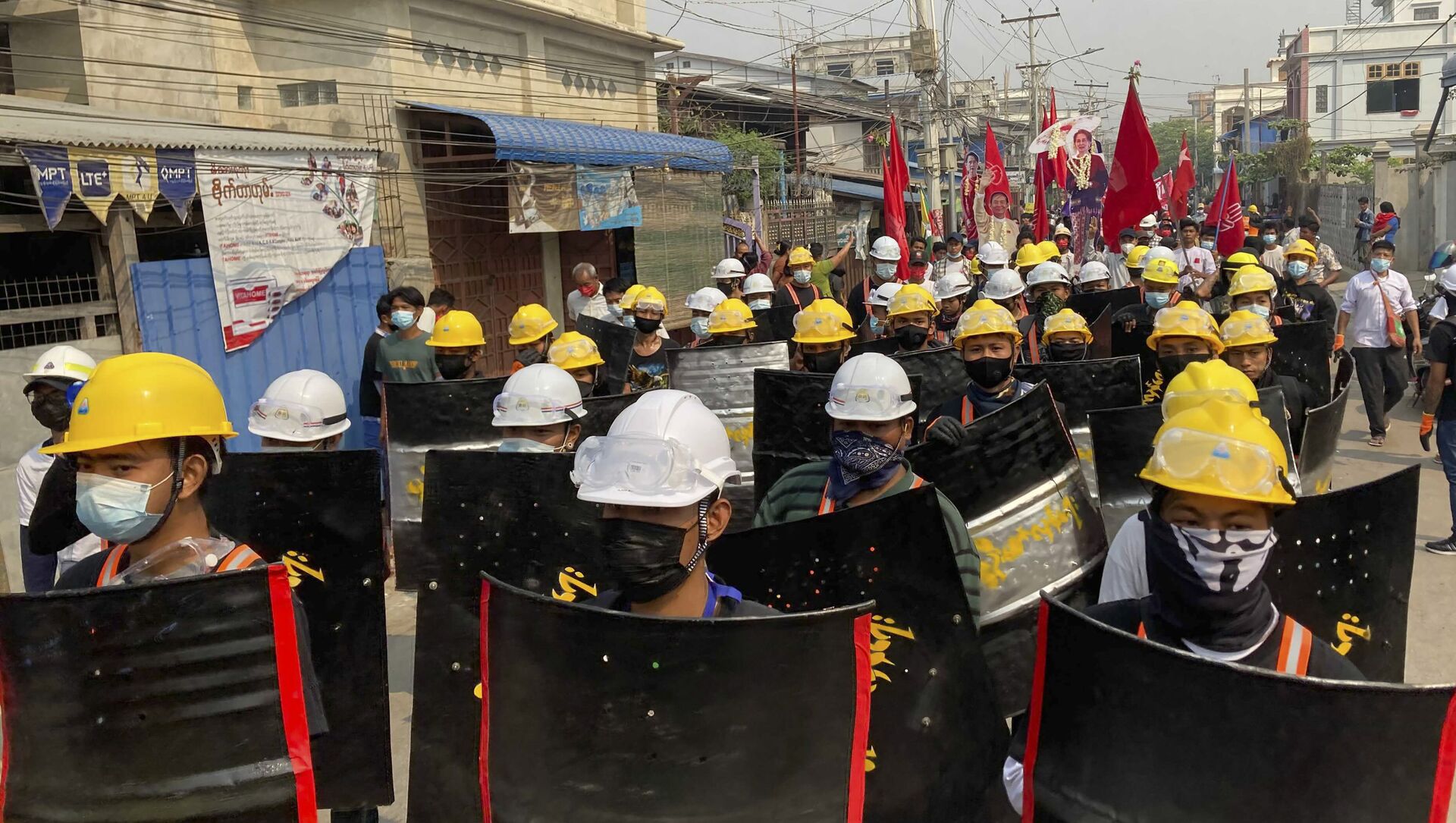The Myanmar authorities should take "more concrete and more vigorous" measures to ensure the safety of the Chinese companies operating in the country, a spokesman for the Chinese Foreign Minister Zhao Lijiang told a media briefing on Wednesday.
Zhao's remarks followed a number of reports saying that around 30 Chinese companies have been targeted during the nationwide anti-coup protests in Myanmar, with a number of Chinese workers suffering injuries. Most of the companies affected are located in Shwe Lin Ban Industrial Zone and Hlaing Thar Yar township, according to the Global Times.
In the wake of the attacks, the Chinese embassy in Myanmar called on local authorities to stop further violence being directed at Chinese factories. Several reports suggest that Beijing has urged its businesses operating in Myanmar to evacuate non-essential personnel.
The anti-Chinese sentiment in Myanmar has been brewing since long before the military takeover on 1 February. Back in 2007, the Chinese-led construction of the Myitsone Dam along the Irrawaddy River in Myanmar caused protests and clashes between the government’s forces and ethnic rebels from the Kachin Independence Organisation that had been going on for about four years. The construction would reportedly have flooded an area of around 700 square kilometres and displaced tens of thousands of villagers in northern Kachin State so it was suspended in 2011.
There have also been rumours, as yet unproved, that Beijing could take the lead in backing the military coup.
On 15 March, Zhao emphasised during a daily briefing that the economic and trade cooperation between the two countries has for a long time been based on the principle of mutual benefit and cooperation, noting the significance of the Chinese business activities for Myanmar’s socio-economic development.
“The actions of these lawbreakers [protesters] are not in the interests of Myanmar and the Burmese people. We call on the people of Myanmar to express their demands legally and not to be incited, so as not to affect the friendship relations between China and Myanmar,” the Foreign Ministry’s spokesman said on Monday.
To date, China has been Myanmar’s largest investor, contributing roughly $20Bln to the country’s economy over more than 20 years, according to Myanmar’s Directorate of Investment and Company administration. The cooperation between the two nations is to be found in a number of major projects, namely the China-Myanmar Economic Corridor, the Ruili Border Economic Cooperation Zone, Kyaukpyu Special Economic Zone, and some projects incorporated in China's Belt and Road Initiative (BRI).

Thousands of people have been taking to the streets of Myanmar to protest against the 1 February military takeover. Tensions between the protesters and the police started to rise as law enforcement officers reportedly began opening fire against the protesters. On Monday, the United Nations said at least 138 people have been killed in Myanmar since the beginning of the protests.
On 1 February, the country’s military declared a state of emergency for a year, transferring power to the commander-in-chief, General Min Aung Hlaing. Myanmar’s State Counsellor Aung San Suu Kyi, and President Win Myint as well as other top officials who were members of the ruling National League for Democracy (NLD) party, have been detained and accused of election fraud.


